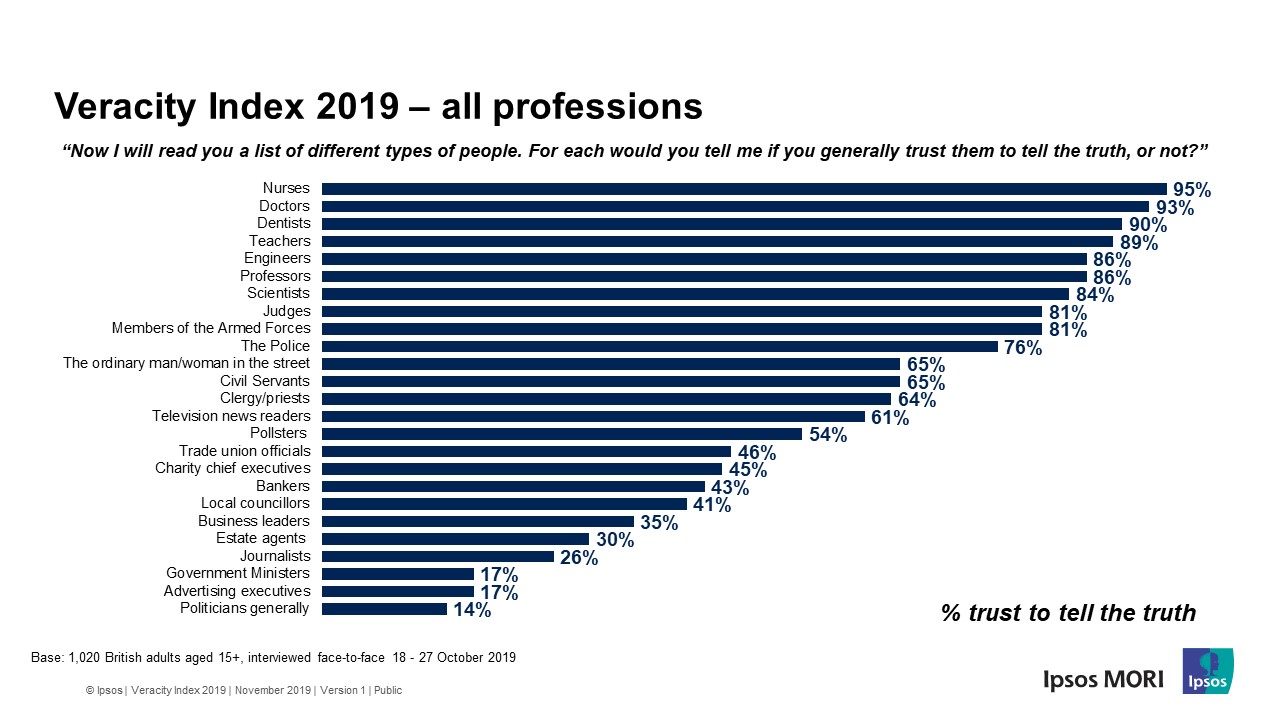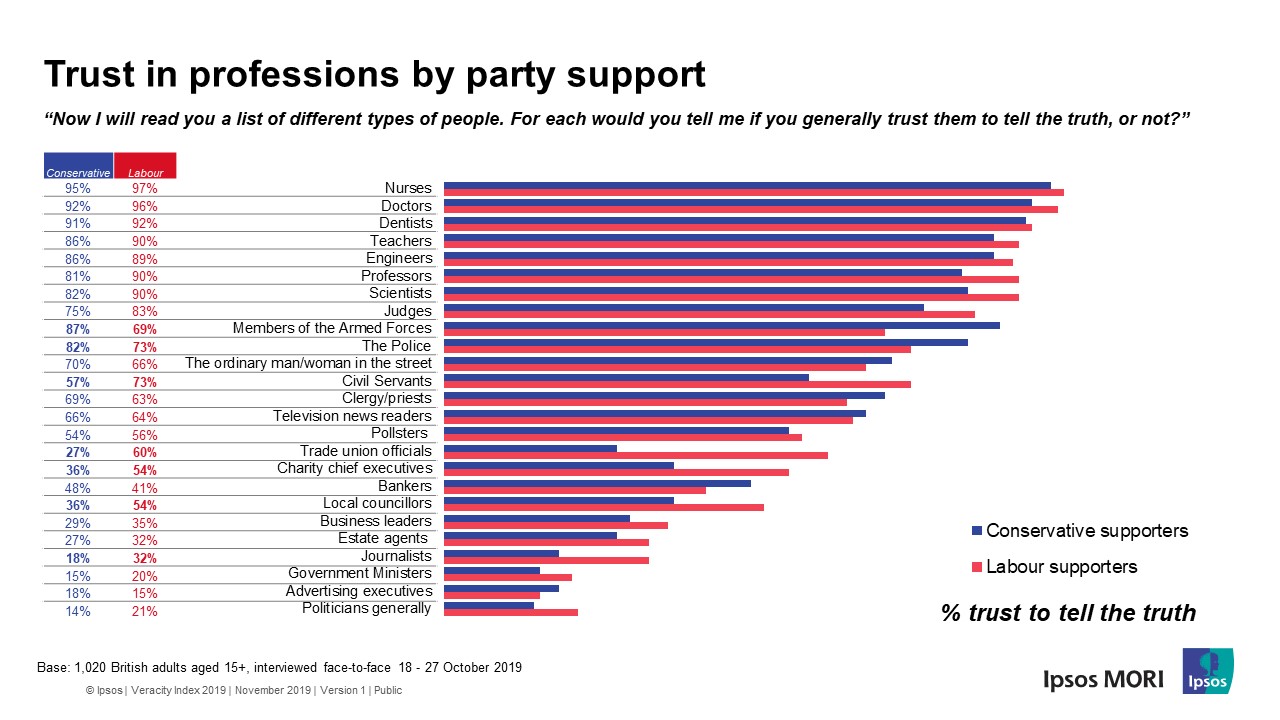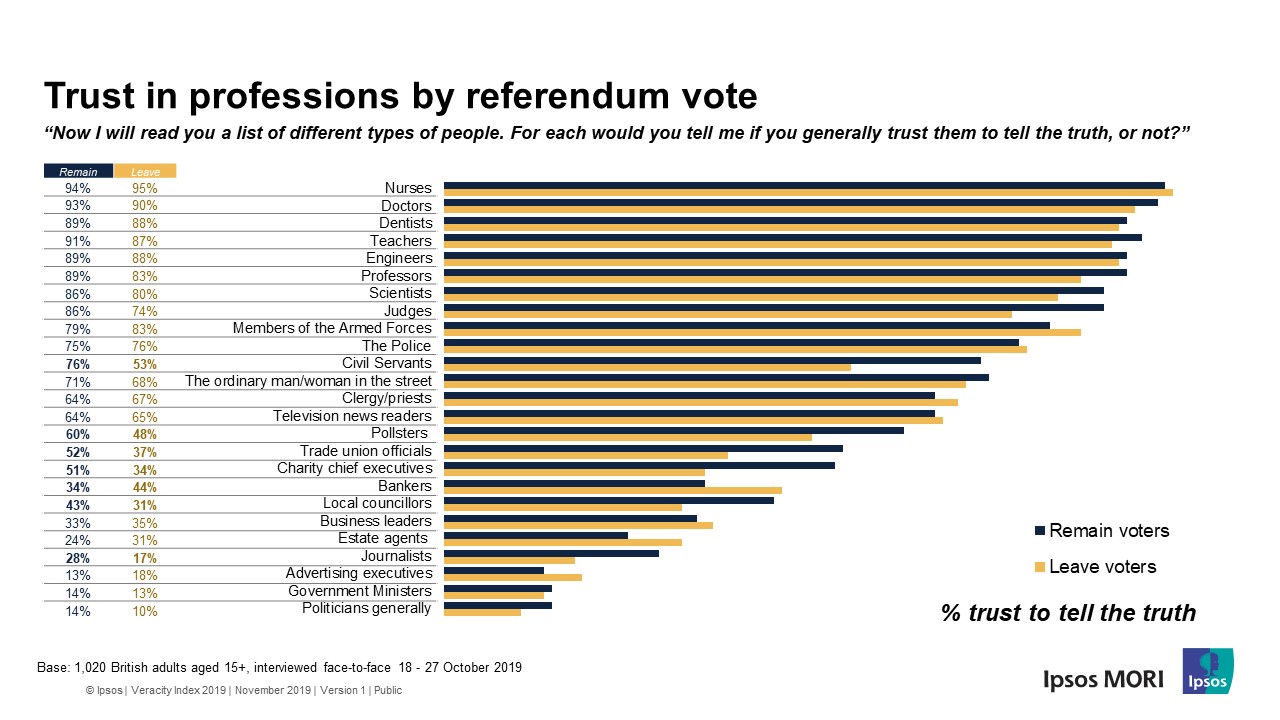Trust in politicians falls sending them spiralling back to the bottom of the Ipsos Veracity Index
Key headlines include:
- Trust in politicians has fallen by five percentage points and they have displaced advertising executives as the least trusted profession in the survey. At the start of this General Election campaign, just fourteen per cent of the public said they trust politicians in general to tell the truth – a five-percentage point fall since 2018. Trust in politicians has always been in short supply, but this figure matches previous lows recorded in 2016 (15%), 2011 (14%) and 2009 (13%)
- Trust in Government Ministers has also fallen. Seventeen per cent trust Government Ministers, another five-percentage point fall since 2018. The lowest score recorded for Government Ministers was in 1993, when 11 per cent felt they could be trusted to tell the truth.
- Nurses remain the most trusted profession in Britain. Ninety-five per cent of the public say they trust nurses to tell the truth, close to their 2018 score of 96 per cent.
- Ninety per cent of the British public trust dentists to tell the truth. A new profession in this year’s list, dentists rank similarly teachers (89%), and just behind doctors, who are on 93 per cent. All three of the most trust professions on the list this year are medical professionals
- Trust in Civil Servants continues to rise. This year 65 per cent trust them to tell the truth, up from 62 per cent in 2018. This builds on an increase from 56% in 2016, meaning that trust in civil servants has increased by nine percentage points since 2016, and 40 percentage points since the start of this poll in 1983
- The trend of falling trust in the clergy has stalled this year. Two-thirds of the public say they trust priests to tell the truth (64%), close to the 2018 score of 62 per cent. However, the long-term trend remains downward, with a fall of 21 percentage points since 1983
Trust in professions remains driven by demographic factors, especially education. Those with a degree-level qualification are more likely than average to say they trust a wide range of professions. The largest gap between degree holders and those with no formal qualifications is on trust in charity chief executives (55% versus 31% respectively), followed by Judges (87% vs 65%), civil servants (73% and 53%), local councillors (50% and 31%) and engineers (95% and 79%). Degree holders are clear on professions they do not trust, too – 22 per cent trust estate agents, compared with 36 per cent of those with no formal qualifications and there is a similar-sized gap on bankers (34% and 47%).



Mike Clemence, Research Manager at Ipsos, said:
Ipsos’s long-running Veracity Index allows us to trace the evolution of trust in a variety of professions since the early eighties.
This year we see significant falls in public trust in both Government Ministers and politicians more generally. Trust politicians is now at levels comparable to those recorded during previous periods of ‘bad news’ such as the aftermath of the Brexit referendum in 2016, and the 2009 expenses crisis.
It is worth remembering that trust in politicians has never been especially high, but these significant falls mean that politicians have now replaced advertising executives at the foot of our list of trusted professions.
Technical note
Ipsos interviewed a representative quota sample of 1,020 adults aged 15+ across Great Britain. Interviews were conducted face-to-face between 18 and 27 October 2019. Data is weighted to match the profile of the population.



